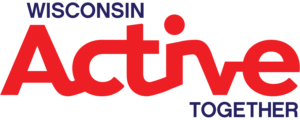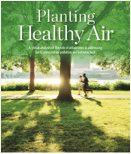The National Park Service, Department of Health and Human Services and the Center for Disease Control came together to create the “Parks, Trails, and Health Workbook,” a quick guide and outline for incorporating public health considerations in the development of a park or trail. Utilizing the health impacts of these natural areas is a different and critically important way to promote parks and trails. Applying health benefits provides a personal connection and increased relevance to community members and encourages them to act and get outdoors. Continue reading “A tool to integrate public health considerations in the development of parks and trails”
Health benefits
Reduce crime and violence with trees in your neighborhood
Can trees reduce aggression, violence and crime? Multiple studies say, “Yes!” October is domestic violence awareness month. Let trees be part of the solution. Levels of aggression and violence have been shown to be significantly lower among individuals who have some nearby nature outside their apartments than among their counterparts who live in barren conditions. Surveys exploring these results show residents with green views report using reasoning more often in conflicts with their children rather than violence. They also report less use of physical violence in conflicts with partners compared to those living in buildings without trees. Continue reading “Reduce crime and violence with trees in your neighborhood”
Foster student success with trees in your neighborhood
September is back to school month. How do you get those kids to settle down and focus after three months off? The answer is as simple as walking right outside your front door! Exposure to nature has shown various impacts on students, from improved academic performance and focus, to reduced Attention Deficit Hyperactivity Disorder (ADHD) symptoms. Research has shown exposure to nature during school hours is positively associated with academic performance, including standardized test scores, graduation rates, and plans to attend a four-year college. Continue reading “Foster student success with trees in your neighborhood”
Getting active in Wisconsin’s urban forest
 By Rob Fontella, fontella@wisc.edu, healthTIDE UW-Madison Public Health
By Rob Fontella, fontella@wisc.edu, healthTIDE UW-Madison Public Health
As the weather gets warmer, Wisconsinites are getting out there and enjoying their community and the natural areas the state has to offer. Recently a new effort was launched to encourage communities in Wisconsin to become part of a campaign recognizing the community’s efforts to promote active lifestyles. Continue reading “Getting active in Wisconsin’s urban forest”
Healthcare facilities using green spaces to help in healing
Imagine taking a relaxing walk in a wooded area, listening to the sounds of wind through trees, birds, and water running down a stream and seeing beautiful, vibrant shade of green. This type of an environment has shown numerous benefits, from cleaner air and water to increased health benefits like reduced stress and blood pressure. Continue reading “Healthcare facilities using green spaces to help in healing”
Trees help clean the air
 A recently published report from The Nature Conservancy titled “Planting Healthy Air,” detailed which cities could benefit most from tree plantings, focusing on the benefit they could gain from the heat and PM (particle matter) reduction credited to tree plantings. This report found that investing $4 per resident in these cities for tree planting could improve the health of millions, further showcasing trees as a cost-effective solution for air pollution and heat islands, among many other urban difficulties. Continue reading “Trees help clean the air”
A recently published report from The Nature Conservancy titled “Planting Healthy Air,” detailed which cities could benefit most from tree plantings, focusing on the benefit they could gain from the heat and PM (particle matter) reduction credited to tree plantings. This report found that investing $4 per resident in these cities for tree planting could improve the health of millions, further showcasing trees as a cost-effective solution for air pollution and heat islands, among many other urban difficulties. Continue reading “Trees help clean the air”
Urban Forestry supports health care research
The University of Illinois is taking the lead on a three-year research project exploring urban forestry’s effects on health care spending. The project will be the first to focus specifically on urban forestry’s economic return on investment. Health expenditures of over 4 million people will be analyzed with LiDAR (Light Detection and Ranging) canopy coverage. The project will also result in a free, online tool that can be used to estimate a community’s return on investment for their urban forest.
For more information contact Ellen Clark (EllenA.Clark@Wisconsin.gov), Urban Forestry Communication Specialist, at 608-267-2774.
